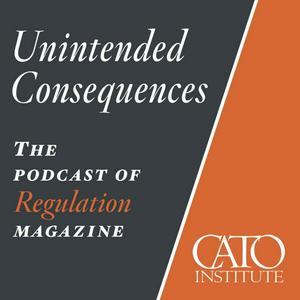Four decades ago, America stopped building new nuclear power plants. Some economists have even linked that decision to the era of lost economic growth known as the “Great Stagnation.” But now demand for energy is exploding, given the need for data centers to service AI, the electrification of cars, and other energy-thirsty applications. Nuclear energy boosters have declared an incipient nuclear renaissance, but, as Peter and Paul discuss, Steve Thomas’ cover article for Regulation Magazine, “The Next Nuclear Renaissance,” questions whether a nuclear energy production boom is actually coming to a reactor near you any time soon.
In conjunction with Regulation Magazine Fall 2025 edition.
Hosted on Acast. See acast.com/privacy for more information.


